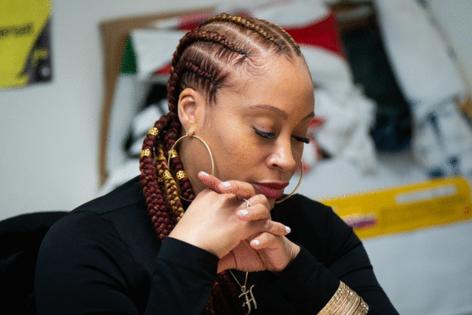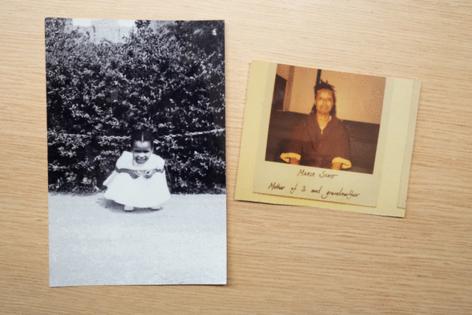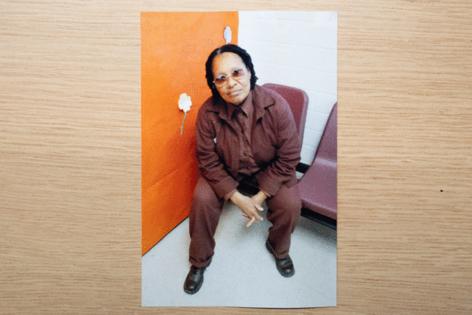Pa. Board of Pardons recommends commuting the life sentence of Marie Scott, 71, who has served 52 years for murder
Published in News & Features
PHILADELPHIA — Pennsylvania’s Board of Pardons on Friday voted to recommend commuting the life sentence of Marie Scott, a 71-year-old woman with cancer who has spent more than a half-century incarcerated for murder and who a community of advocates in Philadelphia have said should be released.
The board voted unanimously to recommend that Scott’s sentence be reduced to time served. Gov. Josh Shapiro must give final approval for the commutation to go into effect, and there’s no time frame for when he would have to make that decision.
The board’s recommendation came despite opposition from the family of Scott’s victim — and it came with a caveat: If the governor approves the commutation, Scott must serve at least six more months behind bars as a penalty for the three times she escaped from prison decades ago before she could become eligible for parole.
Still, Scott’s team of attorneys and advocates, who for years have applied for a commutation without success, were overjoyed Friday at the news that, for the first time in 52 years, she has a chance at going home.
“I really see today as an acknowledgment that people are capable of changing,” Rupalee Rashatwar, one of Scott’s attorneys at the Abolitionist Law Center.
“It’s been 52 years until she was convicted. That’s enough time,” she said. “She’s sick. She’s getting sicker. ... She needs to be home with her family, in the community, and with the people who have been supporting her for so long.”
Scott, known as “Mechie,” has been incarcerated since 1973, after she and her 16-year-old boyfriend, Leroy Saxton, robbed a Germantown gas station. She was 19 and addicted to heroin when she helped Saxton restrain the cashier, Michael Kerrigan, and then rifle through the store’s cash register and safe. Her attorneys say she was acting as a lookout when — to her surprise, she says — Saxton shot Kerrigan, 35, in the back of the head.
The pair was later arrested, and Saxton was convicted of first-degree murder and sentenced to life in prison. Scott was convicted of felony murder and sentenced to the same fate.
But Saxton was released on time served in 2020, after the U.S. Supreme Court overturned mandatory life sentences for juveniles.
Scott, meanwhile, remains in prison.
She is now wheelchair-bound and suffering from Stage 2 breast cancer. She underwent a double mastectomy late last year, but because her doctors say she has more than a year to live, she doesn’t qualify for compassionate release under Pennsylvania law, her attorneys said.
Under state law, people who commit a felony — such as robbery — that leads to a death can be charged with second-degree murder, also known as felony murder, even if they didn’t kill the victim or intend for anyone to die. Pennsylvania is one of only two states in the nation where a felony murder conviction carries a mandatory life sentence.
Shapiro has said he believes in second chances and has called the mandatory sentence for the crime unjust and unconstitutional.
Rashatwar said Scott privately met with the Board of Pardons Friday morning to plead her case. She told them she has accepted responsibility for her role in Kerrigan’s killing, the lawyer said, and she spoke of her transformation over her decades spent in prison.
Since Scott’s three escapes between 1975 and 1980, Rashatwar said, Scott has been a become a model inmate. She has written books about healing, directed plays, led drug and alcohol treatment courses for inmates, and became a mentor and mother figure to dozens of women at Muncy.
Scott’s only daughter, Hope Segers, told the board that if her mother is released, she will be there for her every step of the way. Segers was born at Muncy and is eager to build a relationship with her mother outside the prison walls, she said.
Administrators and staff at Muncy also told the board they support her release “due to the clear changes she has made since she’s been incarcerated,” said William Franz, Deputy Superintendent at the prison.
The board’s commutation recommendation was not guaranteed.
Laurel Harry, secretary of the state Department of Corrections, did not support her release because of the prison escapes, according to Scott’s attorneys. Harry did not speak at Friday’s public hearing.
A member of the Philadelphia District Attorney’s Office attended the hearing, but did not speak. The office declined to comment on its position on Scott’s application.
The board’s vote also came despite opposition from Kerrigan’s family.
Two of Kerrigan’s daughters initially supported Scott’s release, saying that because the teen who pulled the trigger had been released, she, too, should get out.
But they changed their minds and through letters to the board, read aloud on Friday, asked that Scott remain behind bars.
Angela Kerrigan Hightower, a grandchild of Kerrigan’s who was later adopted and would have been his seventh child, said she and her siblings don’t think Scott has expressed sufficient remorse for her actions, and they believe she played more of a role in the shooting than she and her attorneys have acknowledged.
“Cancer is not a get out-of-jail-free card,” Hightower wrote. “She didn’t have compassion for Michael Kerrigan, my grandfather, so I have no compassion for her in my eyes. ... My grandfather was murdered for nothing.”
Doreen Kerrigan Burgess, who was 11 when her father was killed, said she doesn’t feel Scott has adequately apologized.
“Why should she be allowed to be released, to spend time with her grandchild, when my father never got to meet his grandchildren?” she wrote in a statement.
Kerrigan’s children blamed Scott for much of their suffering after his death. Kerrigan worked as a Philadelphia firefighter, but because he was off-duty when he was killed, his family wasn’t eligible for a pension or benefits.
Kerrigan’s wife fell into a deep depression, and stopped caring for her children and started physically abusing them, Burgess said. The children sometimes went days without eating, she said.
The family was never the same, Hightower said, and some of the children struggled with addiction.
“Some of us turned to drugs and alcohol,” she said, “but we never killed anybody.”
Scott’s team of advocates, meanwhile, said they will lobby for Shapiro to support her release.
The Board of Pardons on Friday also recommended the commutation of three other people, including Dannielle Hadley, 61, of Philadelphia, who has served 37 years in prison for her role in the fatal stabbing of a man in 1987.
_____
©2025 The Philadelphia Inquirer. Visit inquirer.com. Distributed by Tribune Content Agency, LLC.












Comments